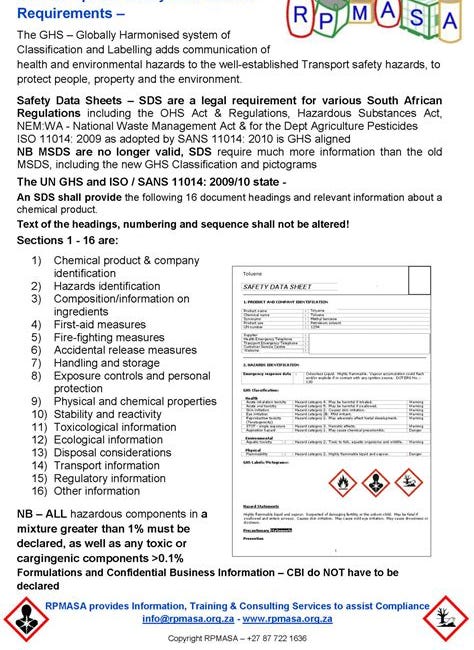Are you what you eat?
My favorite maxims are “There is no free lunch.” and “If it ain’t broke, don’t fix it.” They both apply to what to take and, especially what not to take, into your body.
(Added on February 16, 2024) Dietary supplements can be directly toxic:
How Can You Ascentain How Bad Synthetic Chemicals Are for You?
This time, I am pointing out that some things are commonly accepted as good or helpful, while they are toxic and harmful. Although I’ve mentioned it before, I am also showing a way that still seems to work to find out about toxicity.
Nutritionists
Obey the “experts” or follow “the science”?
Nutritionists operate hand-in-hand with sick-care, with all their “food pyramids” having been proven (deliberately?) wrong time over time. For decades, they have been giving people harmful guidance:
They have been advocating a “low-salt” diet for decades, which might make a tiny reduction in blood pressure. At the same time, humans become ill without salt. Caution is definitely needed, because industrially-produced table salt seems to be truly bad for human consumption. However, rock or sea salts are necessary for the body to function properly. Decent salt is becoming hard to acquire. For instance, the stuff sold as “Himalayan” salt in the last few years, according to my taste buds, is lab-produced salt with some food coloring in it (it has a metallic taste it didn’t have 14 years ago, when it first became available).
They have been pushing for “low-fat” diet, which is fine as long as it means avoiding harmful oils that are usually GMO-based and contain pesticide residues. Fat, especially animal fat, however, is also essential for human survival, because many important nutrients are only fat-soluble. Nutritionists dare to go as far as recommending low-fat milk, without saying a word about growth hormones and antibiotics CAFO cows usually receive and pass on to humans on the food chain. (Not that it matters a lot anymore, because even organic low-heat pasteurized milk is becoming obsolete and UV-pasteurization kills just about everything good in milk.)
High-carb diet has been recommended for decades, which resulted in high blood sugar that was meticulously turned into the permanent condition of “Type-2 diabetes” with a regimen of “medications.” Mundane obesity that weakens immune reactions is another result of a high-carb diet, especially when it comes from processed food.
Not a word about organic produce, with the exception that they are not different from cheaper pesticide-laden produce in terms of nutritional value. Sadly, that is actually true, when the organic stuff is hydroponic, which is allowed to be labeled organic, but is not marked on anything sold in stores.
Nutritionists generously recommend fruits and veggies loaded with pesticides. Some of that is grown into GMO produce, so you cannot even wash it off. Pesticide levels are now hundreds of times higher in edibles than around 1990. The toxins are detectable in human blood, too.
No mention of the harm microwaved food (the body cannot recognize what it’s being fed after the cells are shaken to mush by the microwave that, by the way, also emits harmful amounts of radiation), processed foods, additives, or preservatives cause.
Carcinogen artificial sweeteners are highly recommended instead of sugar, although besides the obvious harm they cause, they also wreak havoc in the person’s metabolism (in English: the fat will become even fatter than from sugar). The harmful impact of corn syrup or, as it’s now often called on food labels, “corn sugar,” is never mentioned, either.
Fact check:
Last time I checked, which was about a couple of years ago, nutritionists picked up an average of $58k a year for their activities that mostly amount to the above entries.
What to eat?
Human seem to be genetically inclined to be on the same diet as their ancestors used for many generations, because the body partially functions according to its metabolic memory.
Counting calories is mostly nonsense. Some people need more, while others less, depending on their genetic memory. Bodies of people with poor ancestors usually need a lot fewer calories. I remember counting calories for the first and the last time. I was a second-division soccer player around the time, when calorie-counting became a fad, so I gave it a try. Based on my height, weight, and the amount of exercise, I was supposed to need 3,000 calories a day. I consumed about 1,200 and was wondering how sick I would be, if stuffed with the allegedly-required 3,000 calories.
High alert:
Don’t forget that you don’t want to put anything into your mouth, into your nose, or on your skin that you wouldn’t eat, because whatever you place there, gets rapidly absorbed by your body!
How about supplements?
While dietary fibers have been recommended for decades, in my case, they only cause intestinal damages, unless someone is prone to have extremely loose stool to begin with. Even brown rice is a fad in my case. In fact, it turns out that white rice is a lot better medium for detox, and adding a little fat in the water (no corn or soy oil, of course) reduces the amount of carbohydrates digested by 60 percent.
L-Lysine and Zinc helped me out on occasion to speed up wound healing (my wounds healed in 2-3 days instead of the usual 7-10 days). I’ve never seen an improvement from any other supplements (not that I tried a whole lot, but I did try vitamin D and liposomal vitamin C, among a few other things), but they might help others (after all, everyone is different). Some people swear on their usefulness, but I’ve never seen any improvement in others using supplements.
Considering that the placebo effect was above 60% in 2002, it might also play a major role in the actual efficacy of supplements. The more people pay for a potential snake oil, the more hell-bent they are to make sure it works. People are usually more determined to make sure that something works, if they invest a lot of their resources into it.*
In general, even Mercola (perhaps the best-known brand-name in the supplement business) supports the idea that nutrition is best, if it comes from a regular diet. That’s a big deal, because he has been making truckloads of money selling supplements since 2009!
So, what gives?
As opposed to the fashionable “scientific” approach, the human body can subsist on very little for some time, and even beyond that, a lot less is enough than whatever is usually recommended by “experts.” The human body, as opposed to the popularized pseudo-scientific view, is not exclusively a witch’s cauldron. Granted, nobody really knows what it is!
You need to know your own needs, because nobody else will.
*I attribute much of what is called “mid-life crisis” to the person’s recognizing that half of their lives is gone and they have been going in the wrong direction.






Next time you have the occasion to be incarcerated in a hospital - notice what they feed you.
Starch, carbs, dessicated tinned vegetables, wheat & gluten, and more wheat & gluten. It's almost like they WANT you to be ill.
I marvel at how bad hospital food is - in a place which is supposed to help, not harm you.
nice to read someone who has done some real research on health, i was feeling somewhat lonely here.
i have a cousin thats a nutritionist at a hospital for patients that cant eat and i had to school her on K2 when she was telling me about adding lots of vit D to their feed. she got her degree before they figured out what K2 does and hadnt kept up